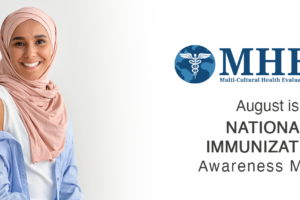
It’s time to talk about men’s health! This month is all about raising awareness around the health issues that commonly affect men. We often hear about how important it is for women to prioritize their health, but men’s health can sometimes fall behind the radar.
So why is it important for men to prioritize their health? Well, for starters, men die at higher rates than women from the top 10 causes of death. Men also tend to engage in riskier behaviors that can negatively affect their health. For example, men are more likely to smoke, drink alcohol excessively, and avoid seeing a doctor when they’re not feeling well.
Fortunately, there are steps men can take to prioritize their health. Here are a few things to keep in mind:
1. Take care of your mental health:
Mental health is just as important as physical health, and men tend to be at greater risk of depression and suicide. It’s important to prioritize self-care practices that help to reduce stress, like mindfulness activities or talking to a mental health professional.
2. Get moving:
Exercise is crucial for overall health, and it doesn’t have to be a strenuous workout. Aim to get at least 30 minutes of moderate physical activity, like a brisk walk or bike ride, most days of the week. This can help reduce the risk of heart disease, obesity, and other health issues that are more common in men.
3. Eat a healthy diet:
A well-balanced diet that includes plenty of fruits, vegetables, whole grains, lean protein, and healthy fats is key for maintaining optimal health. Men should aim to limit their intake of processed and high-fat foods that are harmful to heart health.
4. Schedule regular check-ups:
Men are notorious for avoiding the doctor’s office, but regular checkups are important for catching health issues early on. Make sure to schedule routine exams, screenings, and blood work to monitor cholesterol levels, blood pressure, and other vital health markers.
5. Practice safe behaviors:
Men tend to engage in riskier behaviors that can have negative impacts on their health, such as smoking, drinking excessively, and not wearing seat belts. By practicing safe behaviors and making good choices, men can help reduce their risk of accidents and health issues.
MHEDS Efforts to Improve Men’s Health in Erie, PA
MHEDS is an organization that focuses on eliminating disparities in healthcare by enhancing the health outcomes of underserved, underrepresented, and economically challenged individuals and communities. The organization provides a wide range of services such as health education, screenings, and disease management programs.
To improve men’s health, MHEDS has implemented several initiatives, including:
Offering Free Health Screenings
MHEDS works with community partners to provide free health screenings targeting men. The screening services cover various health conditions such as hypertension, diabetes, and cancer.
Partnering with Health Providers
The organization partners with health providers to enhance access to men’s healthcare services. Through these partnerships, men can access quality healthcare services that are culturally sensitive and responsive to their unique needs.
Encouraging Men to Seek Medical Care
MHEDS encourages men to seek medical care earlier to help prevent and manage health issues. This is achieved by educating men on the importance of regular check-ups and offering support to help them navigate the healthcare system.
Promoting Healthy Lifestyle Behaviors
MHEDS promotes healthy lifestyle behaviors such as physical activity, healthy eating, and smoking cessation to improve men’s health outcomes. The organization also offers workshops on stress management and mental health awareness to promote overall wellbeing.
Conclusion
In summary, men’s health is just as important as women’s health, and it’s important to prioritize self-care and healthy behaviors. This June, let’s raise awareness about men’s health issues and encourage men to take care of themselves. By making small but impactful changes, men can improve their overall health and well-being for years to come.
Want to get a headstart on your health? We deliver a Diabetes Self-Management Education and Support program accredited by the Association of Diabetes Care & Education Specialists to meet the needs of people affected by the disease. Call MHEDS at 814-453-6229 (Peach Street) or 814-616-7730 (John F. Kennedy Center).
Our health information does not replace the advice of a doctor. Please be advised that this information is made available to assist the public in learning more about their health. MHEDS’ providers may not see and/or treat all topics found herein.
Sources
- Centers for Disease Control and Prevention. Men’s Health. (2020). https://www.cdc.gov/men/nmhw/index.htm
- American Heart Association. Why Men are at Greater Risk for Heart Attack. https://www.heart.org/en/news/2019/01/31/why-men-are-at-greater-risk-for-heart-attack
- Men’s Health Network. Men’s Health Index. (2019). https://www.menshealthnetwork.org/health-data/mens-health-index/
- Harvard Health Publishing. The Risks of Not Seeking Medical Care. https://www.health.harvard.edu/blog/the-risks-of-not-seeking-medical-care-2020051919791
- MHEDS. Multi-Cultural Health Evaluation Delivery System. (2021). https://mhedserie.org/








